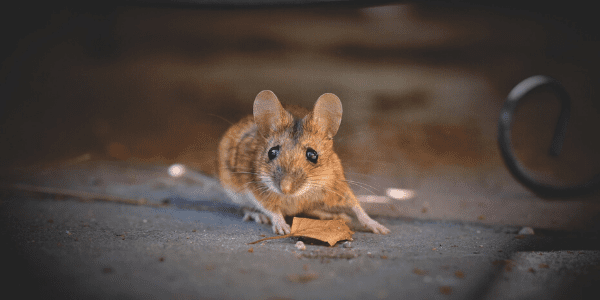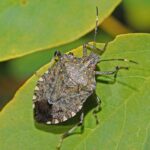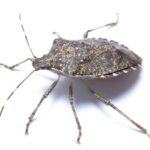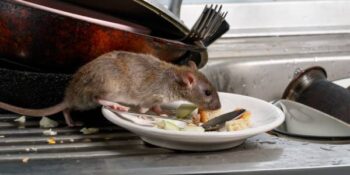
Mice problems are very common on Long Island. The most common mouse is the brown house mouse. If you spot a white mouse, chances are that this mouse was once a neighbor’s pet. While a mouse lives only about 9 to 12 months, they reproduce and can have 50 young within that single year! Mice and rats use their urine and other nasty stuff to leave communication trails for themselves and others to follow. So while the rodents may be clean themselves, they are making a disgusting mess of your home, basement, garage, boat, and anyplace else.
Mice Can Squeeze Through Small Holes and More
Mice can enter your home through the smallest of holes -the width of a pencil (about 1/4 inch across.) They can scale 5-story buildings and are intelligent. Mice enter your home looking for a warm place to live. You can keep them out by sealing cracks and crevices in your home and making sure that your door seals are in good condition. Once mice have entered your home, they can become real problems.
While mice like cereal grains, they will nibble at many different foods. Sometimes, mice make nests out of paper. In the winter, mice look for warm, dry places to live. Most mice will live less than 30 feet from food.
Long Island Mice Problems
Here’s how one Long Island homeowner tried to get rid of her mouse problem. “We have been seeing mice around our house for several weeks. We caught one with a snap trap last week and then another one yesterday, but we’re still hearing them in the walls. We’ve also tried to use peppermint oil, but this hasn’t helped. Please contact me”
One Kings Park homeowner emailed “I have seen two mice in the past week in my house….need help.” Suburban Exterminating is always happy to help with any pest problem in your home! While this Kings Park homeowner actually saw mice, many homeowners just suspect that a mouse is living in their house.
How do you know if you have mice?
You might see mice droppings which are black rod-shaped and smaller than a grain of rice. Gross, right?
Mice continually chew on things. They might be gnawing on your furniture or food containers or wiring. Mice can spread disease, too!
What is Hantavirus? Can I get Hantavirus on Long Island?
While humans can’t transfer this disease to other humans, they can come into contact with it from rodent nests and droppings. Mice and rats can spread this disease through their droppings, urine, or even saliva. These substances can be found, generally, in homes and sheds.
The Center for Disease Control can give you additional information on Hantavirus.
A number of years ago, David Hartstein, 35, from Montauk, Long Island, inhaled the disease while vacuuming his basement. He was a healthy, young man, admitted to the hospital a month after cleaning, and died within a few days. The symptoms began with minor pains. However, after a week, he had a fever and more prevalent pain in his muscles and hands. His death was declared an isolated case, but Long Islanders are encouraged to take caution.
Long Islander’s Favorite Mouse
Of course, Long Islander’s favorite mouse is Mickey!
Did you know that Mickey Mouse hides in all sorts of spots at Disneyworld and Disneyland? It is even rumored that a hidden Mickey was found on the moon. Mice can hide in your home, too.
How to Get Rid of Mice
Let’s face it. Mice in your home are just plain gross. You might have noticed their dropping or heard gnawing or scratching sounds. Mice are rarely seen during the day. They enter your home through small openings and can live in attics, basements, walls, and stored boxes.
If you have mice in your home, you know that they can be really hard to get rid of. Any hardware store will sell you a trap. The most effective traps are placed in the area where mice are found most often. Traps can be a risk to both pets and kids.
Suburban Exterminating has the training and experience to help you to get rid of your mouse problem. Suburban Exterminating technicians are trained to safely remove all traces of pests – including mice, rats, and their droppings. We also offer treatments to prevent mice and rats from entering your home in the first place.
Give your Long Island pest professional a call at (516) 864-6900 or (631) 864-6900.





